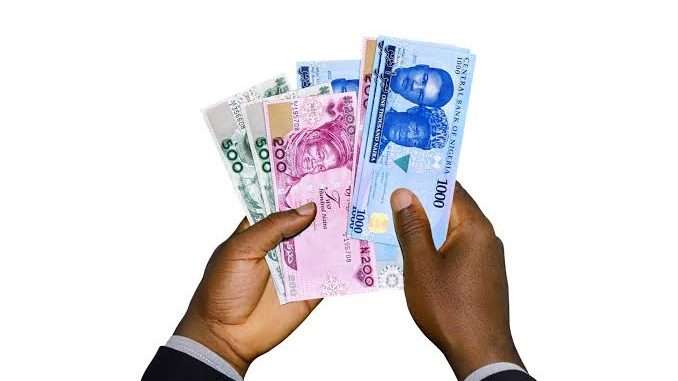
The Nigerian naira has recently experienced a significant decline against the U.S. dollar, with rates reaching approximately N1,634 per dollar in the official market and nearing N1,700 per dollar in the parallel market.
This depreciation is attributed to several factors, including inconsistent foreign exchange (forex) supply and market volatility.
In an effort to enhance transparency and stabilize the forex market, the Central Bank of Nigeria (CBN) announced plans to automate foreign currency trades by December 2024, replacing the existing over-the-counter system.
This initiative aims to reduce market distortions and provide a market-driven exchange rate accessible to the public.
Despite these efforts, the naira has continued to weaken. Between September 6 and September 30, 2024, the CBN sold $543.5 million to authorized dealer banks to mitigate market volatility driven by high demand for commodity imports and seasonal forex needs.
However, this intervention did not lead to a significant strengthening of the naira.
Market participants have expressed concerns over the inconsistent supply of dollars.
Bureau De Change (BDC) operators noted that while CBN’s dollar sales have a positive impact, the lack of regularity in these interventions leads to loss of confidence among customers and increased pressure on the parallel market.
They advocate for more frequent interventions, suggesting that regular weekly sales could help stabilize the market.
The CBN’s recent measures, including the reintroduction of the Retail Dutch Auction System (rDAS) and the planned implementation of the Electronic Foreign Exchange Matching System (EFEMS), are designed to improve transparency and efficiency in the forex market.
However, the effectiveness of these initiatives in reversing the naira’s decline remains to be seen.
In summary, while the CBN has implemented several strategies to stabilize the naira and enhance forex market transparency, the currency continues to face significant challenges due to inconsistent forex supply and market volatility.
The Nigerian naira has recently weakened against the U.S. dollar, trading at approximately N1,634 per dollar in the official market and nearing N1,700 per dollar in the parallel market. This decline is largely due to inconsistent foreign exchange (forex) supply and market volatility.
To improve transparency and stabilize the forex market, the Central Bank of Nigeria (CBN) has announced plans to automate foreign currency trades by December 2024, replacing the current over-the-counter system. This move aims to minimize market distortions and ensure a more market-driven exchange rate.
Despite these efforts, the naira continues to depreciate. Between September 6 and September 30, 2024, the CBN injected $543.5 million into authorized dealer banks to curb market volatility caused by high demand for commodity imports and seasonal forex needs. However, this intervention has not significantly strengthened the naira.
Market participants, including Bureau De Change (BDC) operators, have raised concerns about the irregular supply of dollars. While the CBN’s forex sales provide some relief, the lack of consistency undermines market confidence and puts additional pressure on the parallel market. Many stakeholders suggest that more frequent interventions, such as weekly dollar sales, could help stabilize the currency.
To address these challenges, the CBN has introduced measures such as the Retail Dutch Auction System (rDAS) and plans to implement the Electronic Foreign Exchange Matching System (EFEMS) to enhance transparency and efficiency in forex transactions. However, it remains uncertain whether these strategies will be effective in reversing the naira’s depreciation.
In summary, while the CBN is taking steps to improve forex market operations and stabilize the naira, challenges persist due to inconsistent forex supply and ongoing market volatility.
ChatGPT says:
The Nigerian naira has recently experienced a significant decline against the U.S. dollar, with rates reaching approximately N1,634 per dollar in the official market and nearing N1,700 per dollar in the parallel market. This depreciation is attributed to several factors, including inconsistent foreign exchange (forex) supply and market volatility.
Naira and Dollar NotesNaira suffers setback against dollar as CBN extends Forex sales deadline
The Naira has enjoyed stability against the dollar since December 2024 due to reforms by the Central Bank of Nigeria (CBN).
The Naira depreciated at the official market on Monday, trading at N1,495.60 to a dollar.
Data from the FMDQ Security Exchange official forex trading platform revealed that the Naira lost N20.82.This represents a 1.4 per cent loss when compared to the previous trading day on Friday, Jan. 31, when the local currency closed trading at N1,474.78 to a dollar.
Trading on the Investors and Exporters (I&E) Forex window on Monday recorded a high of N1,497.50 and a low of N1,470.00.The Naira has enjoyed relative stability against the dollar since December 2024 due to sustained reforms by the Central Bank of Nigeria (CBN).
The reforms are aimed at ensuring transparency in the foreign exchange (FX) market.The apex bank’s reforms are also boosting capacity of BDCs who are in the retail end of the FX market.The apex bank on Tuesday, Jan. 28, in Abuja, approved waivers on the 2025 annual license renewal fee for all existing BDC operators.
